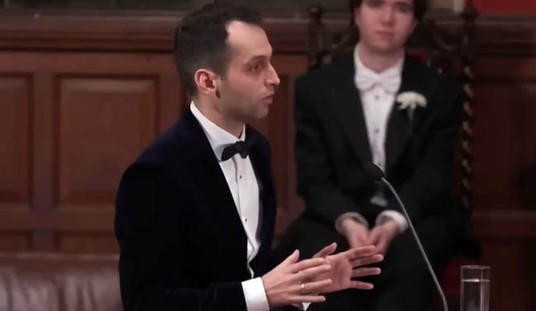After watching how AIG got torn to shreds in the media and inside the Beltway for paying contractually-obligated retention bonuses to execs, Citigroup has decided to take no chances. They have asked permission from Treasury to pay their executives in their energy-commodity division bonuses based on their excellent performance thus far. They want to continue to make a profit and need to keep the talent from finding greener — and less federally-bailed-out — grass elsewhere:
Citigroup Inc., soon to be one-third owned by the U.S. government, is asking the Treasury for permission to pay special bonuses to many key employees, according to people familiar with the matter.
The request comes as Citigroup is grappling with broad government pay restrictions that could break apart its legendary energy-trading unit. People at that unit, Phibro, are threatening to leave because of pay caps tied to the U.S. bailout of Citigroup. Phibro has been the source of hundreds of millions of dollars in profits for the bank, and has paid out hefty compensation, including a roughly $100 million windfall last year for the unit’s leader, Andrew Hall. …
Citigroup is trying to get U.S. approval for special bonuses for many of its employees. In a meeting earlier this month with Treasury Secretary Timothy Geithner, Citigroup CEO Vikram Pandit made the case for the stock-based bonuses. Executives are describing the bonuses as “retention” awards to perk up demoralized employees who the company worries are vulnerable to poaching by rival firms, people familiar with the matter said.
A person familiar with Mr. Geithner’s thinking said the Treasury hadn’t made a decision on whether to allow the bonuses. It is unclear how much Citigroup would pay out in bonuses if the government approved the move. A Citigroup spokesman declined to comment on details of the proposed compensation plans.
On one hand, it would make sense to get approval from the shareholders. After all, it’s their money … or I mean it’s our money, since the US government will shortly have a 36% stake in common stock. Asking the stockholders for permission to make large payouts seems almost reasonable, except of course that the government shouldn’t be owning any of Citi or any other private firm.
Does anyone else find this disturbing or embarrassing, or both? A private company feels it has to ask permission from Washington DC to pay retention bonuses to executives in a profitable business unit. Citi put itself in this position by drinking the bailout Kool-Aid, of course, but it shouldn’t have been available to drink in the first place.
As far as having executives poached, I’d call that a free-market correction at this point. Citi chose to take government funds and let Obama in their boardroom. One consequence of that is that Obama apparently gets to make their compensation decisions, which puts them at a market disadvantage. That should serve as a warning to other firms looking to suck off the taxpayer teat.
The Obama administration has insisted that all of these, er, investments won’t push them into running the businesses. Well, here’s their first opportunity to make that clear. After the AIG bonuses blew up in their faces when Chris Dodd and Tim Geithner had to admit they both knew about them and protected them, my guess is that Citi’s going to hear, “More GRUEL?!?” rather than “The law, sir, is a ass!”









Join the conversation as a VIP Member